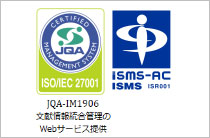ホームIMICライブラリMMWR抄訳2020年(Vol.69)COVID-19による入院が急増時の救急病院におけ・・・
2020/12/04Vol. 69 / No. 48
MMWR69(48):1827-1831
Increase in Hospital-Acquired Carbapenem-Resistant Acinetobacter baumannii Infection and Colonization in an Acute Care Hospital During a Surge in COVID-19 Admissions — New Jersey, February–July 2020
COVID-19による入院が急増時の救急病院における院内感染カルバペネム耐性Acinetobacter baumannii感染症の増加 ― ニュージャージー州、2020年2~7月
2020年5月28日、新型コロナウイルス感染症(COVID-19)で入院する患者が急増している中で、ニュージャージー州の病院(病院A)において、カルバペネム耐性Acinetobacter baumannii(CRAB)感染症のクラスターが報告された。病院Aはニュージャージー州の都市部にある救急病院であり(約500床)、2020年3~8月にCOVID-19患者約850例が入院した。症例数のピークは4月9日で、36例が新規に入院し、入院患者の61%がCOVID-19確診例または疑い例と診断された。2020年5月、ICUの点有病率調査にてCRAB分離菌の増加をNJDOHに報告し、2019年11月以降の入院患者のCRAB分離菌に関する微生物学的記録をレトロスペクティブに調査した。病院AとNew Jersey Department of Health(NJDOH)の調査により、2020年2~7月、院内でのCRABの感染例またはコロニー形成例34例(COVID-19治療のため21例は入院、2例は集中治療室に入院)が確認された。34例(男性24例、女性10例、年齢中央値55歳)のうち、28例(82%)が病院内のCOVID-19症例が急増していた2020年3~6月にCRAB感染またはコロニー形成し、17例(50%)にてCOVID-19の原因ウイルスであるSARS-CoV-2感染が確認された。入院からCRAB感染またはコロニー形成までの期間中央値は19日であり、25例(74%)が人工呼吸器を装着した。34例中20例(59%)がCRAB感染症と診断され、そのうち14例(41%)は人工呼吸器関連CRAB肺炎、4例は菌血症であった。この報告の時点で23例(68%)が退院し、10例(29%)は死亡、1例は入院中であった。全例、多剤耐性CRABの基準を満たし、30検体のRT-PCRによるカルバペネマーゼ遺伝子検査では、26検体がOXA-23カルバペネマーゼをコードする遺伝子をもち、そのうち2月と3月に採取された2検体からニューデリーメタロβラクタマーゼをコードするカルバペネマーゼ遺伝子がさらに検出され、COVID-19症例が急増する前にCRABが発生していたことが示唆された。2020年3月後半、COVID-19関連入院の増加により人員、個人用保護具、医療機器の不足が生じた結果、通常の感染予防対策が行えず、多剤耐性生物体の蔓延が生じた可能性が考えられた。病院Aでは2020年6月、COVID-19による入院患の急減に伴い、院内関連CRAB症例もほとんどなくなり、8月にはCRAB感染者はなく、本来の病院の状態へ回復した。
References
- CDC. Antibiotic resistance threats in the United States 2019. Atlanta, GA: US Department of Health and Human Services, CDC; 2019.
- Chen CH, Lin LC, Chang YJ, Chen YM, Chang CY, Huang CC. Infection control programs and antibiotic control programs to limit transmission of multi-drug resistant Acinetobacter baumannii infections: evolution of old problems and new challenges for institutes. Int J Environ Res Public Health 2015;12:8871–82. PMID:26264006 <https://doi.org/10.3390/ijerph120808871>
- Gootz TD, Marra A. Acinetobacter baumannii: an emerging multidrug-resistant threat. Expert Rev Anti Infect Ther 2008;6:309–25. PMID:18588496 <https://doi.org/10.1586/14787210.6.3.309>
- Magiorakos A-P, Srinivasan A, Carey RB, et al. Multidrug-resistant, extensively drug-resistant and pandrug-resistant bacteria: an international expert proposal for interim standard definitions for acquired resistance. Clin Microbiol Infect 2012;18:268–81. PMID:21793988 <https://doi.org/10.1111/j.1469-0691.2011.03570.x>
- CDC. Healthcare-associated infections: tracking CRE in the United States. Atlanta, GA: US Department of Health and Human Services, CDC; 2019. <https://www.cdc.gov/hai/organisms/cre/trackingcre.html>
- Porretta AD, Baggiani A, Arzilli G, et al. Increased risk of acquisition of New Delhi metallo-beta-lactamase-producing carbapenem-resistant Enterobacterales (NDM-CRE) among a cohort of COVID-19 patients in a teaching hospital in Tuscany, Italy. Pathogens 2020;9:635. PMID:32764228 <https://doi.org/10.3390/pathogens9080635>
- Tiri B, Sensi E, Marsiliani V, et al. Antimicrobial stewardship program, COVID-19, and infection control: spread of carbapenem-resistant Klebsiella pneumoniae colonization in ICU COVID-19 patients. What did not work? J Clin Med 2020;9:2744. PMID:32854334 <https://doi.org/10.3390/jcm9092744>
- Nori P, Szymczak W, Puius Y, et al. Emerging co-pathogens: New Delhi metallo-beta-lactamase producing Enterobacterales infections in New York City COVID-19 patients. Int J Antimicrob Agents 2020;56:106179. PMID:32987104 <https://doi.org/10.1016/j.ijantimicag.2020.106179>
- Ben-Chetrit E, Wiener-Well Y, Lesho E, et al. An intervention to control an ICU outbreak of carbapenem-resistant Acinetobacter baumannii: long-term impact for the ICU and hospital. Crit Care 2018;22:319. PMID:30463589 <https://doi.org/10.1186/s13054-018-2247-y>
- Tomczyk S, Zanichelli V, Grayson ML, et al. Control of carbapenem-resistant Enterobacteriaceae, Acinetobacter baumannii, and Pseudomonas aeruginosa in healthcare facilities: a systematic review and reanalysis of quasi-experimental studies. Clin Infect Dis 2019;68:873–84. PMID:30475989 <https://doi.org/10.1093/cid/ciy752>
Copyright © 2013 International Medical Information Center. All Rights Reserved.












